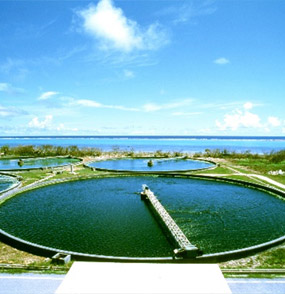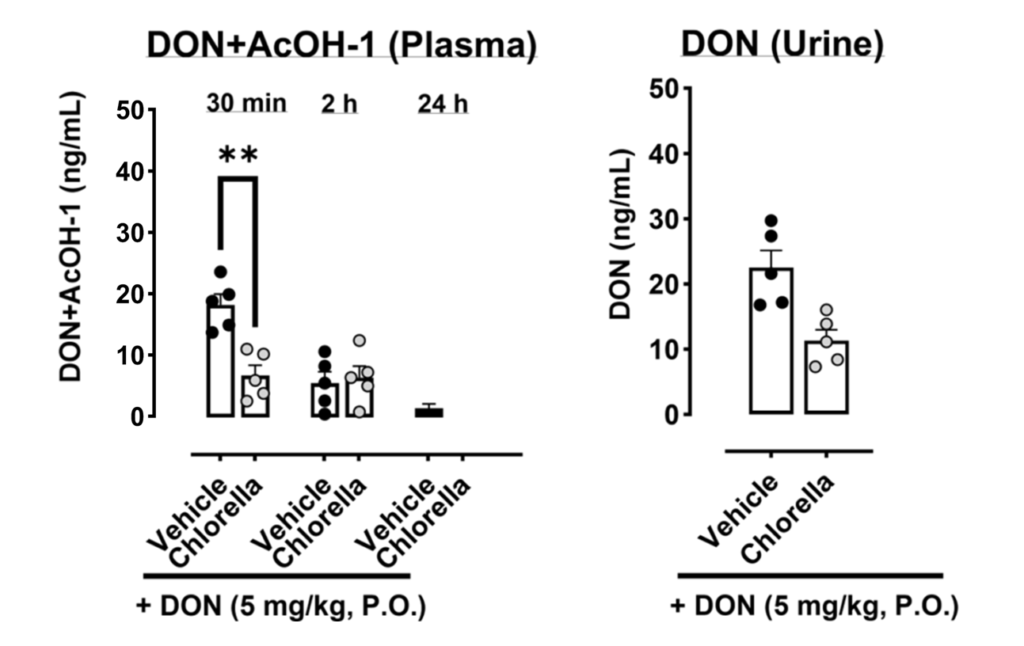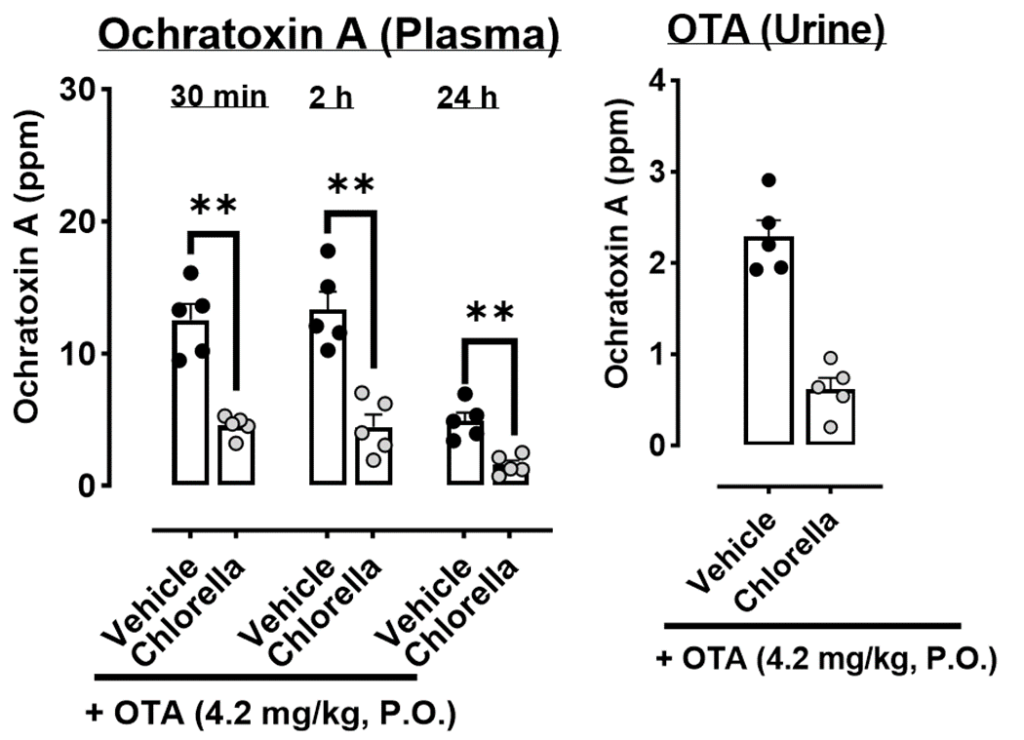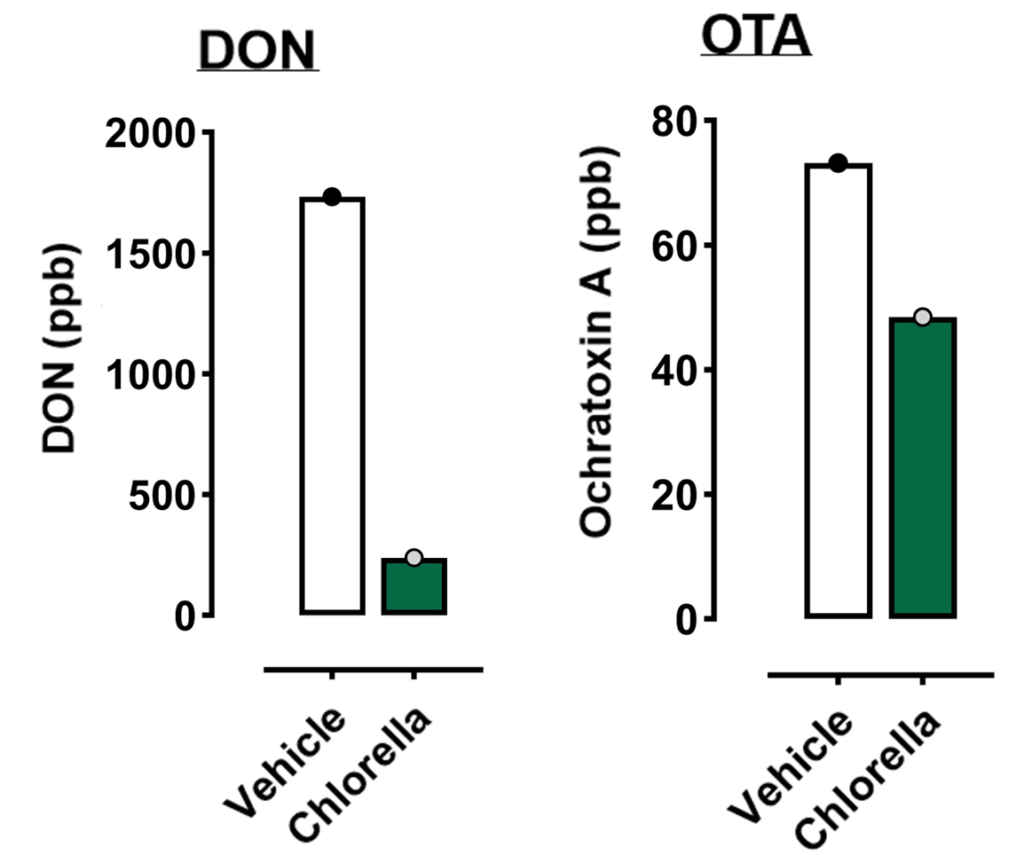
Research Indicates Yaeyama Chlorella Promotes Mycotoxin Excretion
Euglena Co., Ltd. (Headquartered in Minato-ku, Tokyo, CEO: Izumo Mitsuru) in collaboration with Associate Professor Tomoki Fukuyama of the Faculty of Veterinary Medicine, Azabu University (Located in Sagamihara, Kanagawa, President: Kawakami Yasushi) is pleased to announce the findings of their joint research. The study reveals that the intake of Yaeyama Chlorella promotes the excretion of mycotoxins. These findings were presented at the 89th Academic Lecture of the Japan Mycotoxin Society held on August 18, 2023.
*Mycotoxins are chemical substances produced by fungi that contaminate plants and stored grains, posing health risks to humans and livestock.
Background and Purpose of the Study
Mycotoxin contamination in food has been reported to cause health damage to humans and livestock. For instance, Deoxynivalenol, a type of mycotoxin, is known to cause loss of appetite and immunotoxicity, while Ochratoxin A is recognized as a nephrotoxic agent and a causative substance for kidney cancer. There are also frequent cases where multiple mycotoxins are detected from the same food source, raising concerns about the synergistic toxic effects of combined mycotoxin contamination. This necessitates the exploration of materials that can detoxify or inhibit absorption.
Previous studies have reported that the intake of chlorella, a type of microalgae, promotes the excretion and detoxification of heavy metals such as lead, methylmercury, and cadmium. Additionally, it has been suggested in human and quail tests that chlorella has an absorption inhibitory effect against Aflatoxin, another mycotoxin. This study aimed to verify the toxin excretion effect of Yaeyama Chlorella on Deoxynivalenol and Ochratoxin A.
Research Content and Results
1. Yaeyama Chlorella Intake Suggested to Promote Mycotoxin Excretion in Plasma and Urine Mice were administered a solution mixed with Deoxynivalenol, Ochratoxin A, and Yaeyama Chlorella after fasting. Plasma and urine were collected 30 minutes, 2 hours, and 24 hours post-administration to measure mycotoxin concentrations. The results, as depicted in Figure 1, indicated a significant decrease in Deoxynivalenol concentration in plasma with the mixture of Yaeyama Chlorella, suggesting a potential inhibition of absorption and metabolism of Deoxynivalenol by Yaeyama Chlorella. Similarly, Ochratoxin A concentrations in both plasma and urine significantly decreased in the Yaeyama Chlorella administered group, as shown in Figure 2.

Figure. 1 Concentration of Deoxynivalenol in Plasma and Urine. ** p<0.01 vs control, Student’s t-test

Figure. 2 Concentration of Ochratoxin A in Plasma and Urine. ** p<0.01 vs control, Student’s t-test
2. Binding of Yaeyama Chlorella and Mycotoxins Confirmed Deoxynivalenol and Ochratoxin A were mixed with Yaeyama Chlorella in test tubes overnight. After mixing, the solutions were centrifuged, and the mycotoxin concentration in the supernatant was compared with a non-chlorella group. The results, illustrated in Figure 3, showed a significant decrease in the concentration of Deoxynivalenol in the supernatant when mixed with Yaeyama Chlorella, suggesting a strong binding between the two. A decreasing trend was also observed for Ochratoxin A.

Figure. 3 Concentration of Various Mycotoxins in the Supernatant
In conclusion, the intake of Yaeyama Chlorella may inhibit the absorption of mycotoxins, promoting their excretion, possibly due to direct adsorption. Euglena Co., Ltd. will continue its research efforts to elucidate the functionality of Yaeyama Chlorella.
- About Yaeyama Chlorella: Chlorella is a type of single-celled green algae that naturally grows in freshwater. Among them, Yaeyama Chlorella, managed by the Euglena Group of Yaeyama Shokusan, is produced under the subtropical climate of Ishigaki Island. It is characterized by its high chlorophyll content and well-balanced nutrients and is loved in over 30 countries worldwide. In January 2019, Yaeyama Chlorella became the first in the world to obtain the "ASC-MSC Seaweed (Algae) Certification," one of the most effective methods for achieving SDG Goal 14.
- About Euglena Co., Ltd.: In 2005, they were the first in the world to successfully establish a technology for large-scale outdoor cultivation of the microalgae Euglena (Japanese name: Midorimushi) for food. They are involved in the development and sale of food and cosmetics using microalgae like Euglena and Chlorella, research towards biofuel production, and offering genetic analysis services. Since 2014, they have been delivering Euglena cookies, rich in nutrients, to children in Bangladesh through the "Euglena GENKI Program." This initiative expanded in April 2019 to include cosmetics and all group products. They define their philosophy as "Sustainability First" and continue to expand their business. Source
- About Azabu University: Azabu University will celebrate its 135th anniversary of its foundation in 2025. As a private university focusing on zoological research, it actively engages in nurturing new talents based on its top-class achievements. The Faculty of Veterinary Science consists of the Department of Veterinary Medicine and the Department of Animal Applied Sciences. In addition to the nationwide common model core curriculum and participatory clinical training, the Department of Veterinary Medicine offers enriched education with facilities and equipment suitable for clinical education. Furthermore, diverse research activities related to animals are conducted in many laboratories. Source
